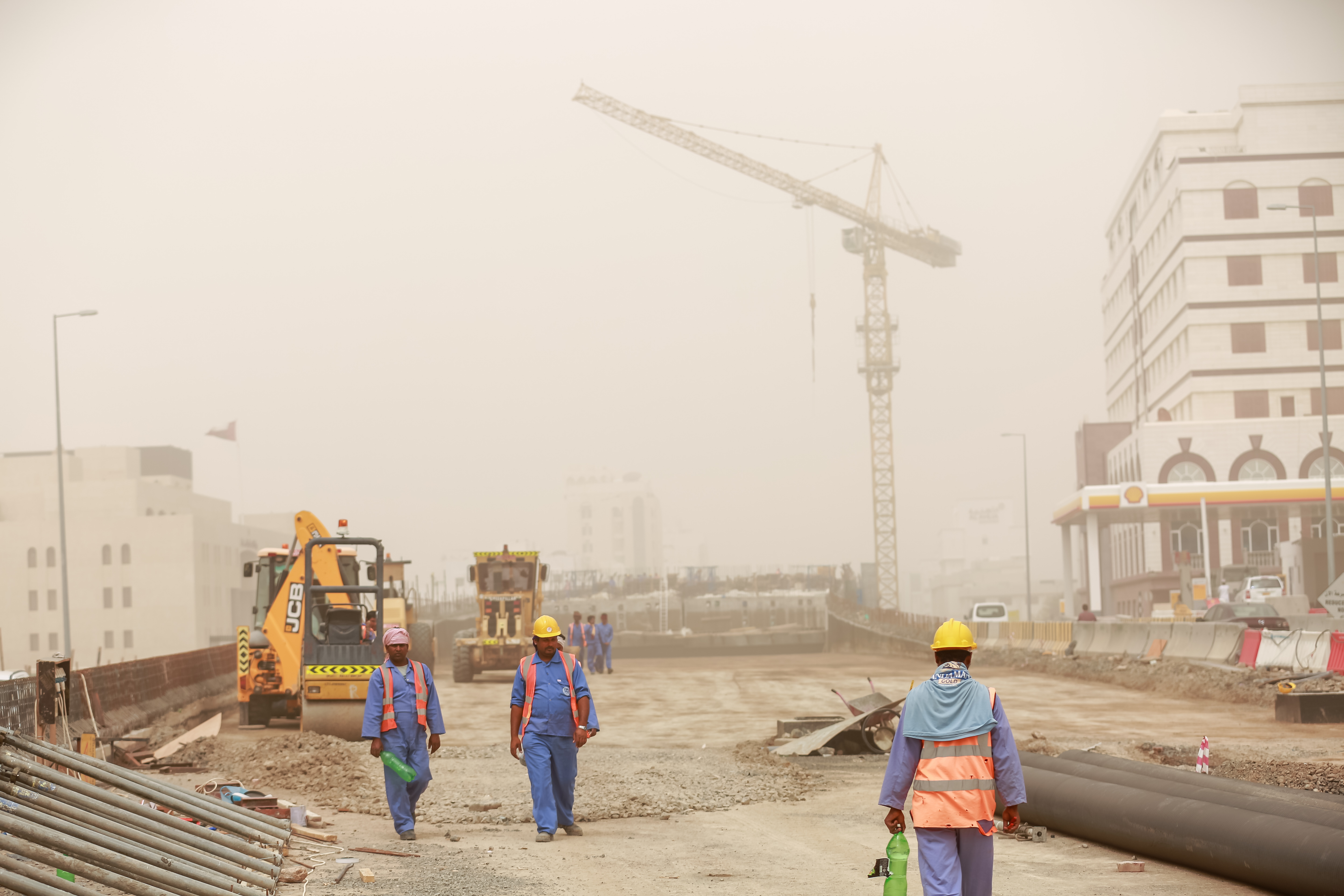
Workers from South Asia started migrating to the Gulf Cooperation Council (GCC) countries much before GCC was formed as an official bloc.
As many countries in the bloc started to drill oil, driving the development engine with petro dollars, migrants also played a vital role in boosting the development of the host and home countries.
While migrant workers have helped erect the glittering buildings of themetropolises of many GCC capitals, including the Burj Khalifa and the Abraj Al Bait, a few to name, their hard earned remittances have also propelled the economies of South Asia.
According to data, India earns $70 billion annually from the remittances of its citizens abroad; Pakistan earns $15 billion; and Bangladesh makes $14 billion.
Meanwhile, Nepal relies on its citizens abroad for 25 per cent of its gross domestic product; Bangladesh for 12 per cent and Sri Lanka for 10 per cent.
However, the enormous contribution of low-wage workers employed in construction and domestic work are neither acknowledged nor welcomed back home.
Not only in the gleaming buildings they have helped build, but also by the countries that surround them. In their country of birth, their contribution to economic development is taken for granted and they are largely ignored. Sometimes, even their own families abuse their generosity and selflessness.
At best, South Asian men and women, who work in the GCC brave difficult working conditions in a hot and unfamiliar land.
But too often they are reportedly underpaid or not paid at all. There are also reports that they are forced to perform extra tasks and work long hours without overtime pay, are reportedly abused, kept in captivity and made to work in unsafe conditions.
Many a times, workers facing hostile conditions have nowhere to turn for help; although their governments know the extent of the problem, they have done little to address it.
This highlights the importance of a ‘Plan of Action,’ which will be discussed in Kathmandu, the capital city of Nepal, by migrant-sending countries in South Asia.
Two years ago, on November 27, 2014, the South Asian Association for Regional Cooperation (SAARC), an economic and geopolitical organisation of eight countries, had adopted the Kathmandu Declaration, Article 21 agreeing to cooperate to improve the safety, security and well-being of migrant workers from South Asia.
The crucial question now is whether the SAARC governments will back up their rhetoric with action and address the gross neglect of their citizens abroad.
The ‘Plan of Action’ to implement Article 21 has been drafted by Nepal and is to be discussed and finalised by the SAARC governments next month before being adopted at the SAARC Summit in Pakistan later this year.
For migrant rights activists, the Kathmandu meeting is a momentous occasion that is expected to propel these countries to take badly needed action to protect their migrant workers.
They are optimistic, however, as they have a lot of questions.
Will this be a turning point for migrants in GCC? Will South Asian governments commit to a meaningful plan of action and finally take responsibility for their citizens abroad? Will they commit to ensuring ethical recruitment with no fees for migrant workers? Will they agree to promulgate a standard contract across the region? Will migrant workers in the GCC be able to turn to their governments in times of need?
For those who stand for the welfare of workers, and for those who migrate to support their families back in their homeland, I hope that these questions are answered and their concerns are addressed regarding their well-being, as they are often and unfortunately only considered money remitting machines.
- Rejimon K is a senior reporter with the Times of Oman and has attended several global meetings for the welfare of migrants.